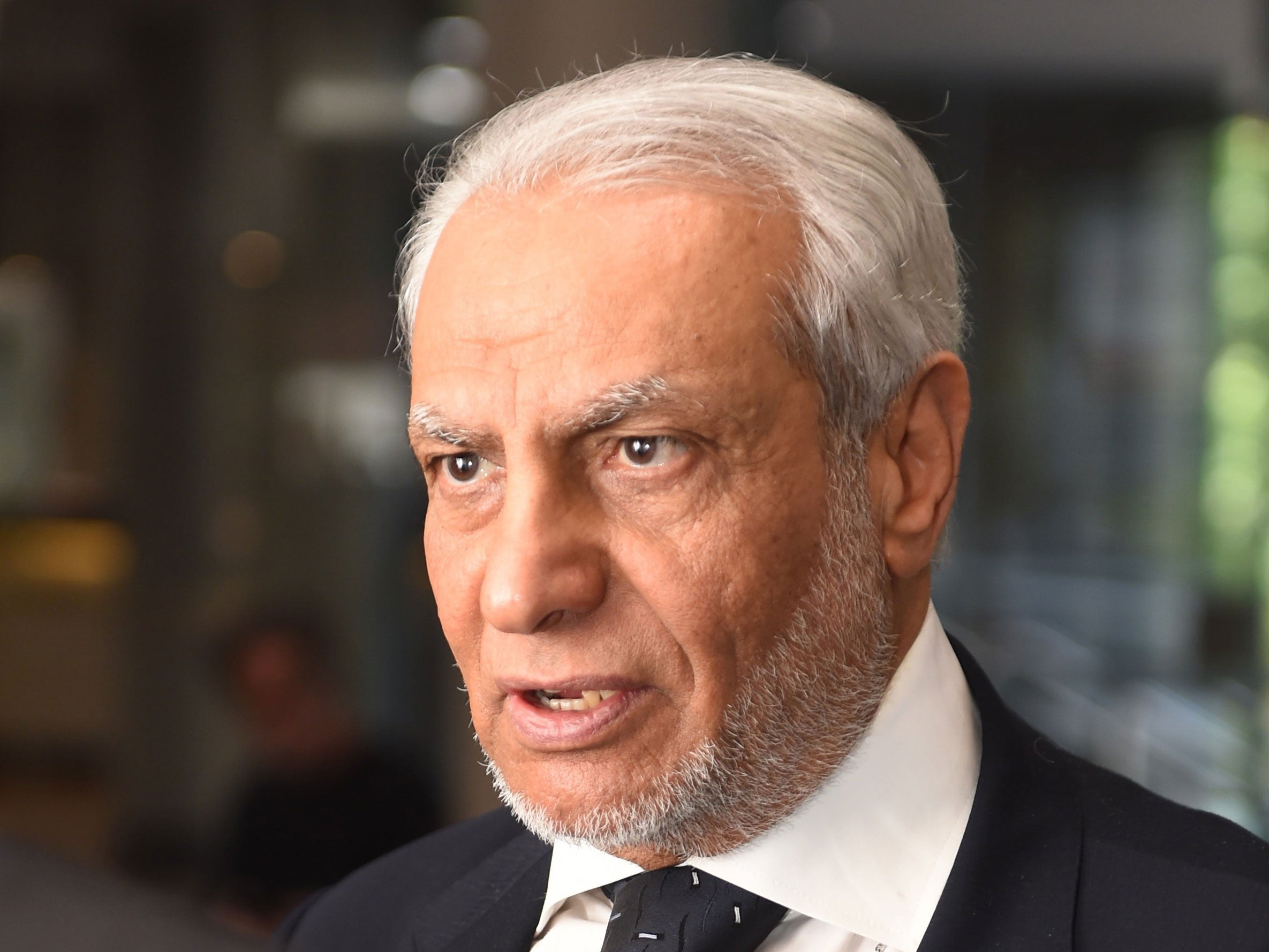Australian newspaper publishes image of Muslim leader Grand Mufti Dr Ibrahim Abu Mohamed as a monkey
The Daily Telegraph in Sydney used the 'see no evil, hear no evil, speak no evil' illustration on its front page

An Australian newspaper has prompted outrage after it published a front-page illustration of the Grand Mufti of Australia Dr Ibrahim Abu Mohamed mocked up as a monkey.
Sydney's Daily Telegraph used three images of the Muslim leader, who was born in Egypt, based on the famous "see no evil, hear no evil, speak no evil" triptych.
But in replacing the monkeys with Dr Mohamed, and adding the words: "Sees no problem, hears no concerns, speaks no English", alongside the headline: "The unwise Mufti", the newspaper has been branded "Islamophobic" by some on social media.
The saying stems from a Japanese proverb in which three wise monkeys - Mizaru, Kikazaru and Iwazaru - are depicted with their hands over their eyes, ears and mouths respectively, often used to describe someone who turns a blind eye to undesirable information or behaviour.
But, as highlighted by the Guardian, it is considered extremely poor taste to depict anyone of Asian, African or Middle Eastern origin in poses usually reserved for monkeys, and people have duly taken to Twitter to brand the image "alienating", "irresponsible" and even tantamount to "inciting terrorism".
The controversial front page was apparently designed to highlight criticism of the Mufti's reaction to the news of the terror attacks in Paris, as told through a press statement released to the media.
In the statement, he said: "These recent incidents highlight the fact that current strategies to deal with the threat of terrorism are not working.
"It is therefore imperative that all causative factors such as racism, Islamophobia, curtailing freedoms through securitisation, duplicitous foreign policies and military intervention must be comprehensively addressed."
The Mufti also left a comment on his Facebook page on the day of the shootings and bombings, saying his thoughts were "with the victims, families and people of Paris and Beirut at this time of unspeakable horror".
But he was accused of shifting blame and of failing to respond appropriately to the attacks.
Facebook user Peter Amoy wrote: "Not surprised the Mufti 'muffed' it. It's just a continuation of a long list of lost opportunities to bridge the growing rift between muslims and non-muslims in Australia.
"The Mufti's original response to the Paris attacks was universally condemned. The Grand Mufti just does not get it does he?"
The Daily Telegraph opened its front page piece with the words: "Australia’s grand mufti faced widespread criticism yesterday for his stubborn refusal to condemn the Paris terror attacks.
"Instead, Dr Ibrahim Abu Mohamed has attempted to shift blame for the massacre on everything from 'racism' to 'Islamophobia'."
Dr Ameer Ali, former chairman of the Australian Federation of Islamic Councils, spoke about the issues raised by the Daily Telegraph.
“The problem I have with the Mufti is he cannot communicate in English," he said. "That means he has to rely on the people around him."
The newspaper has since defended its use of the monkey image, claiming Dr Mohamed had in fact been amused when he saw it, and that he had said, through his translator: “I laughed and I laughed.”
If we look at the messiah Jesus Christ as well, who was mocked by his people
He was also said to have compared it to the mockery of prophets in the past, telling radio station 2UE: "“If we look at the messiah Jesus Christ as well, who was mocked by his people."
Dr Mohamed later issued another statement, saying he and his Australian National Imams Council “consistently and unequivocally condemned all forms of terrorist violence”.
He called the actions of Isis a "crime against religion" and said there was "no justification for the taking of innocent lives” by Isis, a group also known as Daesh an IS.
But he said he believed "the simple and sole condemnation of Daesh or IS for what it is, is not going to be enough".
Join our commenting forum
Join thought-provoking conversations, follow other Independent readers and see their replies
Comments